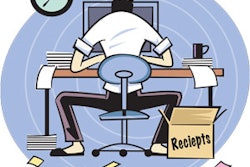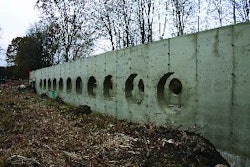Read the papers and I'm sure you're all opening the windows getting ready to jump. Listen to the economists and you start pulling yourself back in but are still ready to take the dive at the least provocation.
Contractors and equipment dealers are nervous. Depending on your area of expertise and location, many of you have reason to be. It's going to be one of those years where you need to keep focused on your backlog and cash flow.
If you look at the industry, it's not as bad as you may think. If you're in commercial, road, and industrial markets, 2008 may not be too bad. In the housing market, it will depend if your area is already overbuilt and needs some time to correct. If the Feds step in to ease the foreclosure issue, housing may rebound sooner than expected.
While some aspects of this market can be bad, there may be opportunities to consider, as well. Certain types of equipment will be available on attractive terms. Interest rates are also attractive at this time. Rental rates may also reflect market conditions, and commodity prices may decrease because of lower demand.
Ensure cash flow
So what do we all have to do? Budget to take into account a lower sales volume for 2008. Take into account what it will require to earn the sales. Use your variable cost of sales to determine gross profit, then deduct personnel, occupancy and all other operating costs, including interest expense and taxes.
Next, calculate your cash flow to see if collections cover expenses plus debt service. Don't forget, cash flow is what matters - and is the only thing that matters. It is not unusual to reflect book profits and go broke at the same time.
Probably the best way to understand your cash position is to project balance sheets using your normal turnover ratios. This is one of the best exercises you can do if you want to really understand your business.
What if you find your lower sales projections do not generate adequate cash flow? Not a pleasant thought, but if it happens, it is time to reduce cash outflow. It is best to start with debt service by selling equipment with low utilization or by selling off various paid off units to pay down debt. Want to keep your equipment? Then rent it to other parties to generate cash. You may also look to refinance now because banks have a need to look for new business.
Next, you will want to trim payroll and use outside contractors where possible. Last, review operating expenses to see if all expenditures are truly necessary at this time. There is probably not one income statement line item you can't reduce in some way, shape, or form.
Keep the money coming
On the balance sheet side, you need to bill as soon as possible without fail. Get those receivables booked, then follow up religiously for collection. Take cash, checks, and credit cards - whatever it takes.
Also, be conservative on the inventory and work-in-process side. Do not take on inventory levels you cannot handle. Keep the asset side of the balance sheet under control, and you will sleep better.
On the liability side, you know which vendors you can stretch and which ones you can't, and I'm sure you all know not to mess with the payroll taxes. If you need to stretch some vendors, then at least tell them and meet your payment date.
By now, you should be getting the drift of things - bill and collect sooner than you have to pay your own bills. If you can do that, you can ride out the storm. If you can't, additional action is required that will be tough to deal with.
Get your business under control. Know what is coming in and going out every day. Check that billing is being done daily. Personally review the checks going out. Have a running cash balance at your disposal. Know what you owe and when. And finally, have a game plan in mind should further adjustments be required.



















